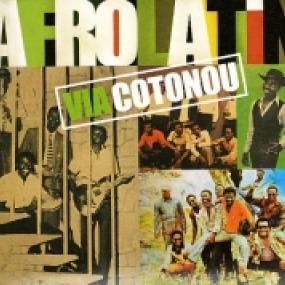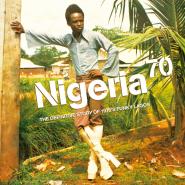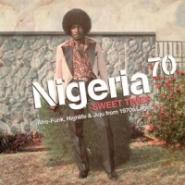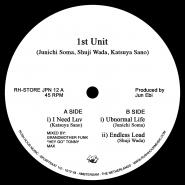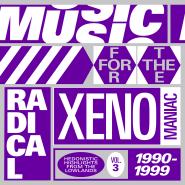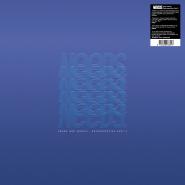AFRO LATIN VIA COTONOU by V/A
CD Version
Tracks
- Yiriyiri Boum - Gnonnas Pedro
- Bonne Année - Honore Avolonto
- Naye Tche - Avohou Pierre
- Errante y Bohemio - Los Commandos De Cotonu
- Le Silence N'est Pas un Oubli - Poly-Rythmo
- Noun Ma Do Minsi Wë - Black Santiagos
- Hotel Tropicana - Les As Du Bénin
- El Manicero - Pablo Medetadji
- Ten é Ten - Melome Clement
- Kissi Noumi - Poly-Rythmo
- Gnon Nou Dagni Wan Na - Dynharmonie
- Madazon Mio - Supermen De Cotonu (The)
- Ngbahanovo - Gnonnas Pedro
- El Manicero - Black Santiagos
- Oya Ka Jojo - Les Volcans Du Bénin
- Yao Yao - Poly-Rythmo
- Zoun Ma Vie Và Se - Avohou Pierre
- Etrococo Masawenin - Gnonnas Pedro
- Babadé Né Mi - Black Santiagos
- Vi Vo - Negros Jazz De Cotonou
- Sèmassa - Poly-Rythmo
- Ma Koba Houi Deo - Avohou Pierre
- Bonne Guérison - Black Santiagos
- Afeto Kpo Nublanui Nam - Les As Du Bénin
- Amia Yaco - Nerose Rythm
- Gninou - Negros Jazz De Cotonou
- El Cochechivo - Gnonnas Pedro
- Wloui Bonu Houide - Poly-Rythmo
Description
This edition in the Via series focuses on Cotonou, the largest city in Benin. 28 tracks going from afrobeat to cuban influenced music!The impact of Cuban music -- one of the first non-Western genres to have been disseminated throughout the world thanks to records -- has been crucial in the emergence of popular forms of African music. Because of the exodus of African slaves to the Caribbean and America, strong linkages exist between the Afro-Cuban population and culture and African countries on the Atlantic coast, especially in West Africa. Known as "the baobab of Beninese music," the greatest Beninese star went by the name of Gnonnas Pedro. During the 1970s, he was accompanied by the Dadja s Band, with whom he recorded some fifteen albums released in Benin, Nigeria, France and Ghana. On "Bonne Annee," accompanied by the Black Santiago orchestra with whom he had started out, Honora Avolonto explores the same style as his colleague, Pedro. Pierre Avohou, another legend and pillar of modern Beninese music, pays homage to his mother on "Naye Tcha"." Even more Cuban-sounding, "Zoum Ma Ve MÃ SÃ" benefits from the presence of the Black Santiago orchestra, with whom he recorded a superb album in 1979. Like their colleagues from Poly-Rythmo, Black Santiago backed many Beninese artists. This prolific band was just as much at ease with the Afro-Cuban repertoire as with Afro-beat. A standard among standards, "El Manisero" has been a major source of income for a number of orchestras in West Africa and well beyond. Pablo Medetadji's version, recorded in 1980, benefits from his solemn vocal tones and faultless phrasing, reflecting the time he spent developing this repertoire in the straw-hut bars around the Gulf of Benin. Along the coast, from Nigeria to the Ivory Coast, many orchestras livened up the evenings by playing at elegant hotels and dance clubs. In Togo, with two albums, the band Les As Du Benin established itself as one of the greatest dance acts in the region. Other influential groups and orchestras include Dynharmonie, Supermen de Cotonou, Negro Jazz de Cotonou, Nerose Rhythm and Volcans du Benin. Includes a booklet with liner notes in English and French by Florent Mazzoleni. Produced by Ibrahima Sylla.

